Unmatched in valor, strength, and prowess in battle, Achilles is one of the most legendary figures in Ancient Greek mythology and literature. His decision to seek immortal fame in exchange for his own life underscores the common desire to be remembered even after death. Achilles is also known for a single weakness — his heel — which also serves as a poignant reminder that he was also human. From ancient pottery to Brad Pitt’s portrayal in the 2004 film Troy, the legend of Achilles continues to captivate with its timeless tale of heroism interlaced with human vulnerability.
Who Is Achilles?
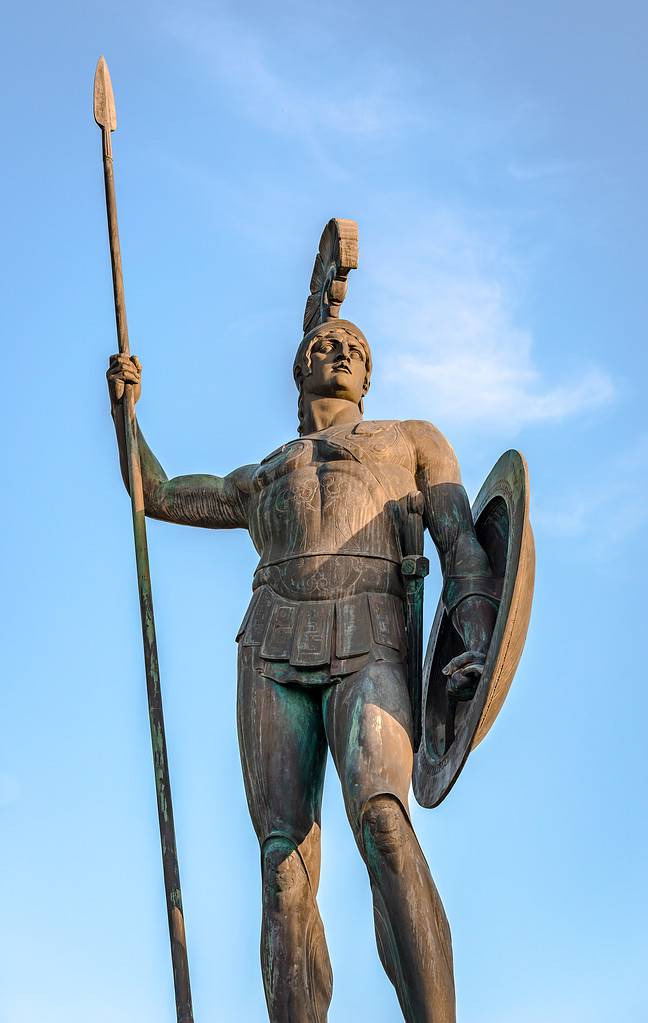
Achilleion, a palace on Corfu, gets its name and decor from Achilles’ story.
©Apostolos Giontzis/iStock via Getty Images
Achilles is the greatest warrior in ancient Greek mythology and literature, especially for his role in the Trojan War. His strength was far beyond any mortal man, and he was well-known for his bravery and invincibility in battle. Achilles was responsible for sacking dozens of cities during the Trojan War. He also killed two Trojan princes, an Ethiopian king, and the queen of the Amazons. In the Iliad, Homer gives Achilles titles like “godlike hero” and “loved of heaven”.
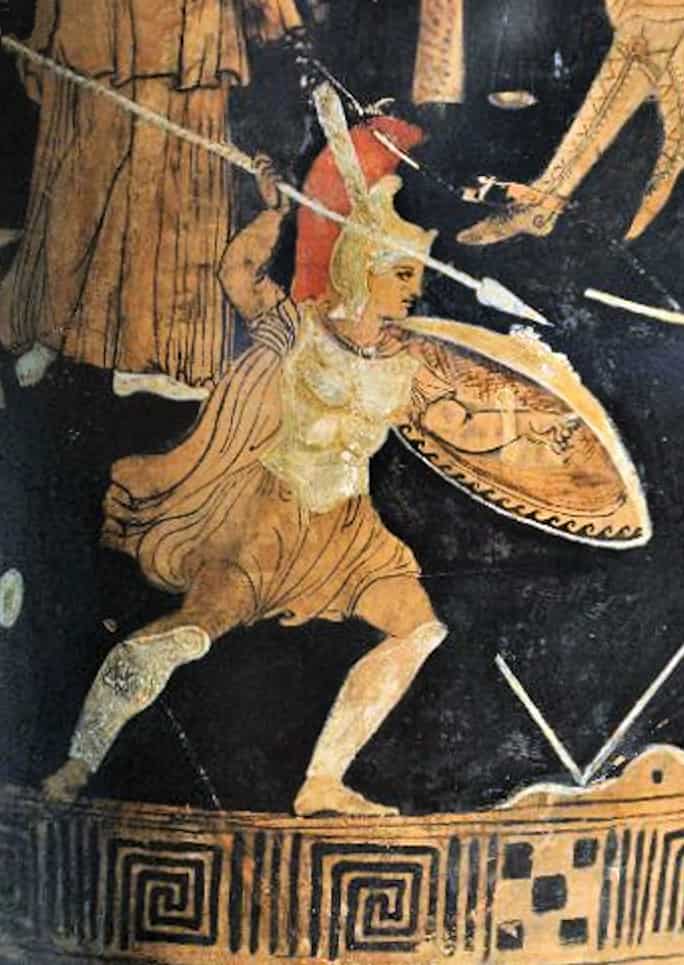
Like many other Greek heroes, Achilles was trained by the Centaur, Chiron.
©Jona Lendering / CC0, via Wikimedia Commons – Original / License
As untouchable as Achilles seemed to be, he had one physical weakness: his weak heel. However, Achilles also suffered from several other human weaknesses, including rage and pride. These, along with his faulty heel, ultimately led to his death during the Trojan War.
Where Did Achilles Come From?
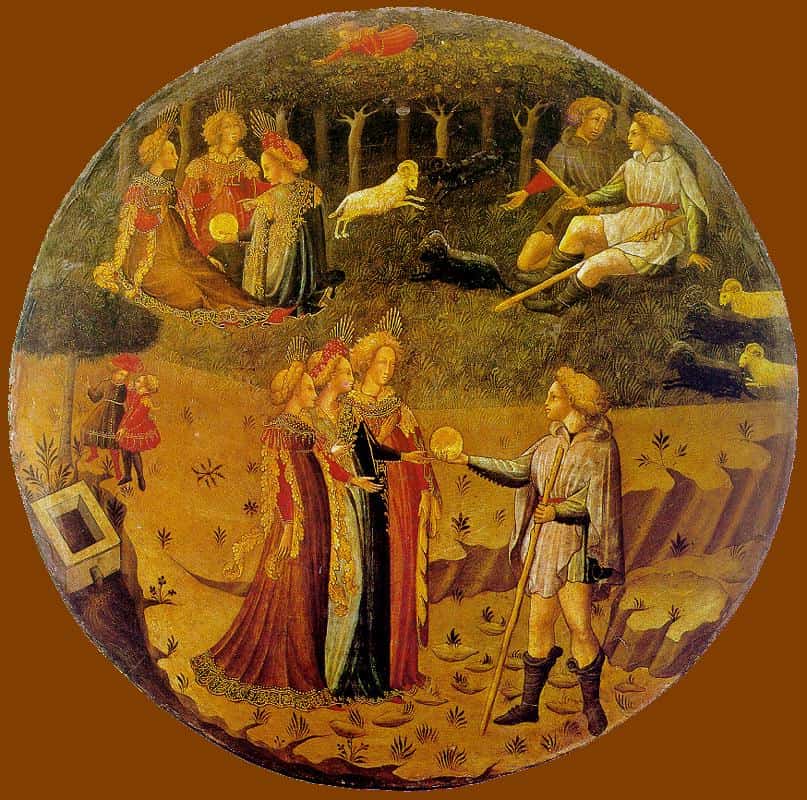
The “Judgement of Paris” was a popular subject in art throughout much of history.
©Master of the Bargello Tondo / Public domain, via Wikimedia Commons – Original / License
Achilles was a Grecian demigod. His father, King Peleus, was a mortal, while his mother, Thetis, was a Nereid and water goddess. However, Achilles’ story begins before his parents ever met.
Long before Achilles’ birth, Zeus and Poseidon sought to marry Thetis. However, after a prophecy foretold that Thetis’ future son would be even greater than his father, both gods wanted nothing to do with her. Instead, Zeus arranged to have Thetis wed Peleus, the royal ruler of the Myrmidons. Although the wedding included both mortals and gods, they failed to invite Eris — the goddess of discord.
Enraged by her missing invitation, Eris threw a golden apple into the wedding festivities. An inscription on the side of the apple read “to the fairest”. As you can imagine, many of the goddesses wanted to claim the title of being “the fairest”. This led to a great deal of discord between Hera, Aphrodite, and Athena. Zeus appointed Paris, a Trojan prince, to judge who they should give the apple to.
Although Paris was well known for his fair judgments, each goddess attempted to bribe the young prince. A romantic at heart, Paris chose Aphrodite, as she had promised to give him the “most beautiful woman in the world”. There was just one problem with this promise: the most beautiful woman in the world was Helen of Sparta, and she was already married to King Menelaus. However, Aphrodite was a powerful goddess, so she brought Helen to Troy to be with Paris — which is why we often call her “Helen of Troy”. Of course, King Menelaus wasn’t too pleased that his wife was taken away from him. Eventually, he convinced the other Greeks to band together and go to war against Troy many years later.
Why Was Achilles’ Heel So Weak?

The Achilles tendon is on the back of the lower leg and connects the muscles to the heel bone.
©sittithat tangwitthayaphum/iStock via Getty Images
After their action-packed wedding feast, Thetis and Peleus settled down and welcomed a new son, Achilles, into their home. However, shortly after Achilles’ birth, a prophecy foretold of his tragic fate. Achilles would have a choice: he could achieve glory and renowned for centuries to come but die young, or he could live a long and happy life but ultimately be forgotten. Fearing for her vulnerable son, Thetis attempted to make him immortal.
Depending on the myth, Thetis held her new baby by the heel and either used divine fire to burn his mortality away or dipped him in the River Styx. This caused Achilles to become completely invincible — except for that teeny tiny spot on his ankle where his mother held him by the heel. This is why we call the calcaneal tendon in the heel the “Achilles tendon”!
In addition, Thetis hid Achilles to keep him safe from his fate. Depending on the story, Achilles was either raised by the centaur Chiron or the royal family of Lykomedes. As hard as she tried, however, Thetis could not protect her son forever. As he grew up, it was clear that Achilles was destined for greatness. Eventually, Odysseus (another Greek hero) convinced him to fight alongside the Greeks in the Trojan War.
Achilles’ Role in the Trojan War
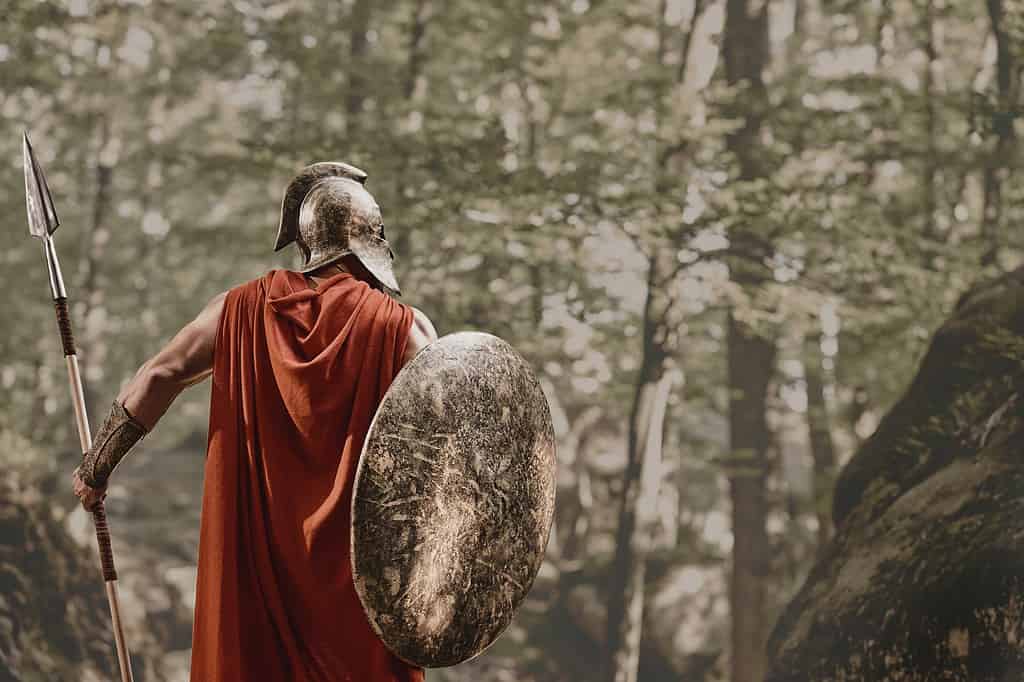
A prophecy told the Greeks that they could not win the Trojan War without Achilles.
©SerhiiBobyk/iStock via Getty Images
When Achilles sailed off to fight in the Trojan War, he brought with him 50 ferocious Myrmidon fighters and 50 strong ships. As the 10-year-long war raged on, Achilles and his warriors easily sacked more than 23 Trojan cities and killed the Trojan prince Troilus.
Whenever the Greeks took a Trojan city, they would divvy female prisoners as “war prizes”. King Agamemnon (the brother-in-law of Helen) had taken Chryseis, a priestess of the god Apollo. Apollo was furious and demanded her return. Angered at his loss, Agamemnon then took the Trojan woman Briseis from Achilles. As you can imagine, this was quite a blow to Achilles’ pride. In retaliation, he and his Myrmidon warriors refused to fight with the Greeks.
Of course, the Greeks had no chance against the Trojan army without Achilles. Within just a few days, their forces dwindled, and they were on the edge of defeat. Achilles still refused to rejoin the fight. However, he allowed his best friend, Patroclus, to wear his armor and lead the Myrmidon warriors into battle again. They won the battle, but Hector, a Trojan prince, killed Patroclus.
Achilles’ Rage
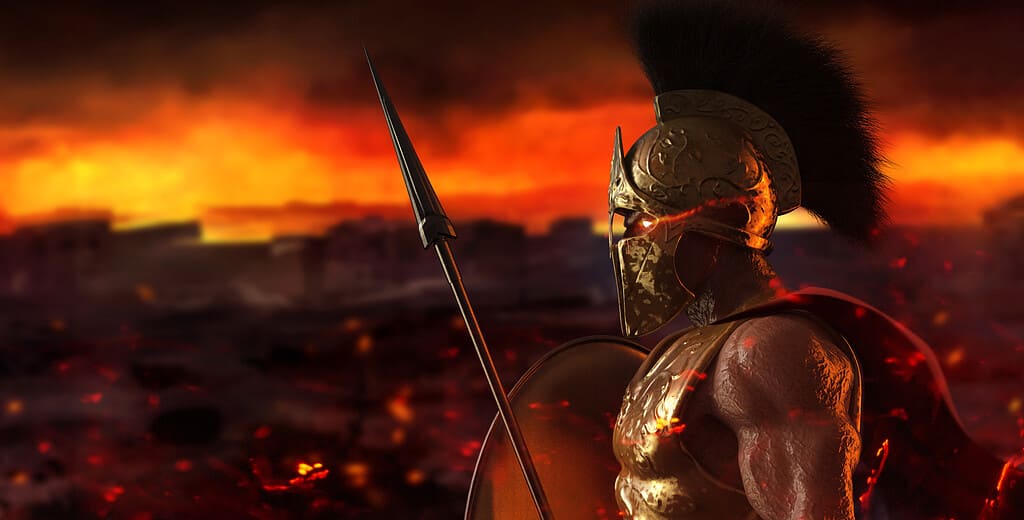
Achilles and Patroclus grew up together and were extremely close.
©breakermaximus/iStock via Getty Images
Patroclus’ death sent Achilles into an explosive rage, and he rejoined the fighting to exact revenge for his friend’s death. No one could stop Achilles, and he destroyed every Trojan soldier he could find. When he finally saw Hector, he attacked the prince with unbelievable fury. As Hector lay dying, he asked Achilles to return his body to Troy for his funeral rites. But Achilles’ anger only grew, causing him to go against the divine rules of ancient warfare. He tied Hector’s lifeless body to the back of his chariot and dragged it around Patroclus’ tomb over and over again.
In the Iliad, Achilles is referred to as “the wrath of heaven” due to his disrespect and unbridled rage. Apollo calls him mad and says that “he is like some savage lion that in the pride of his great strength and daring springs upon men’s flocks and gorges on them”. The gods protected Hector’s body during Achilles’ torture, but it took several days for them to agree on what to do about it. Eventually, Thetis successfully persuaded her son to give Hector’s body to King Priam and allow the Trojans 11 days to mourn.
What Happened to Achilles?

Although Achilles was mortal, only divine intervention could cause his death.
©”The Inscription Painter”, Chalkis, 550 BCE / Public domain, via Wikimedia Commons – Original / License
On the twelfth day following Hector’s funeral festivities, the battle ensued. Achilles fought as hard as ever, killing the Ethiopian King Memnon and Queen Penthesilea, ruler of the Amazons. However, Apollo still hadn’t forgiven Achilles for his disrespect and lack of pity toward Hector. As Paris shot one of his arrows, Apollo directed it straight into Achilles’ heel — his only weakness — and Achilles died in battle.
Later in Homer’s Odyssey, Odysseus sees Achilles in the Underworld and explains that after his death, they buried him in a tomb with Patroclus. He also assures Achilles that his death was not in vain: “Even in death your fame, Achilles, has not been lost, and your name lives evermore among all mankind”.
The photo featured at the top of this post is © SerhiiBobyk/iStock via Getty Images
Thank you for reading! Have some feedback for us? Contact the AZ Animals editorial team.







